ICAP’s 2016 Springfield Seminar ReCAP
July 18, 2016, Abraham Lincoln Doubletree Hotel, Springfield, IL
2016 Illinois Appraisers Update Seminar
by Karen Emerle, SRA
ICAP Reporter & Photographer
Opening the ICAP Springfield 2016 Illinois Appraisers Update Seminar, ICAP President Mike Morris, ARA, MAI, welcomed all attendees. Mike extended a heartfelt thank you for their continued support, attending ICAPs seminars, and for their faithful contributions enabling ICAP to continue its work on behalf of Illinois appraisers and the profession. President Morris presented a brief synopsis of the Coalition’s various accomplishments, the progress made on various legislative bills affecting Illinois appraisers, and provided an overview of ICAPs participation in various local, state, and national issues affecting the Appraisal Profession. The ICAP Advantage newsletter is an exclusive benefit of ICAP membership. The newsletter provides its membership up-to-date status reports on the various issues affecting Illinois appraisers and projects ICAP is working on. ICAP wishes to thank all of our speakers for their participation in ICAPs Springfield 2016 Illinois Appraisers Update Seminar and for providing an exceptionally good day of education to all in attendance. Session highlights from the day follow.

Scott DiBiasio, Appraisal Institute Manager, State & Industry Affairs, presented the opening session Federal & State Legislative Update. The presentation discussed the state of the Appraisal Profession, the decline in mostly residential appraisers, especially in rural areas, and the factors, such as uncertain business climate, economics, over-regulation, alternative evaluations, and industry demographics, impacting the Profession. The current approach to appraising is the AF’s (Appraisal Foundation) effort to turn appraising into a “cookbook type of science” rather than the art it is and has been. 
Mr. DiBiasio discussed the four major statutes specific to appraisers amended by the implementation six years ago of Dodd-Frank. They include: TILA (Truth in Lending Act), FIRREA (Financial Institutions Reform, Recovery and Enforcement Act), ECOA (Equal Credit Opportunity Act), and RESPA (Real Estate Settlement Procedures Act). TILA topics included appraiser independence, reasonable C & R fees, HPMLs (High Priced Mortgage Loans) requirements, and qualified mandatory reporting. FIRREA addressed the Appraiser National Registry fees, AMC minimum requirements and State rules, and ASC policy regarding license reciprocity between States. ECOA includes a provision for the consumer to receive a copy of appraisals and other valuations three days prior to closing.
Mr. DiBiasio also touched on the AMC registry fee for AMC appraiser panels, ICAPs submitted comment letter, appraisal De Minimis threshold levels currently under review, the bank regulators requirement to review regulations every ten (10) years, AVM quality control standard, OCC third party oversight, and the FHA Handbook 4000.1. Additional topics Mr. DiBiaso highlighted are key principles for modernization, federal regulation, State by State portability, uneven playing field, the joint letter by AVOA, AI, NAHB, TAF asking for oversight hearing, SAVE Act and Energy Bill issues, and State issues including evaluations and AO-13, BPOs, appraisal review, and AMC related issues including background checks, recovery funds, and registry fees.
Paul Stoddard presented “Agricultural Land Trends.” Mr. Stoddard is the Lecturer in AGBUS with the Agriculture and Consumer Economics Department at the University of Illinois. Mr. Stoddard can be reached at: pstoddrd@illinois.edu. The TIAA-CREF Center of Farmland Research, the research unit at University of Illinois, Department of Agriculture and Consumer Economics website is: http://farmlandillinois.edu. The University of Illinois Farmdoc website is: http://www.farmdoc.Illinois.edu and the Farmdoc daily website is: http://www.farmdocdaily.Illinois.edu
Characteristics of Farmland as an Investment were outlined. They include, but are not limited to: Relatively expensive, illiquid, and difficult to estimate value. It is location specific and there is very low turnover. The two components of return include cash return and appreciation, which is often the bigger part. Farmers, institutional investors and private parties are the major players in the farmland market. Factors that drive land sales were discussed, including supply and demand expectations, supply factors, demand factors, cash rents, and produce profitability. Mr. Stoddard answered the question, “Why does farmland have value?” An overview of prior years’ as compared to today’s market, and the “normal” relationship between the cap rate and the 10-year T-Note rate were presented.
“Is there a bubble?” Mr. Stoddard compared the common loan terms for a borrower in 1980 to the 2014 terms. Today, many farmers convert variable rate real estate loans to fixed rate loans and crop insurance for farmers/owners can insure both yield and revenues. This has been a game changer in their risk profile of product agriculture. Risks in the agriculture market include major changes in ethanol and energy, cropping patterns, and potential increase in interest rates.
There are two farm bureaus in Illinois, Farm Credit Illinois and 1st Farm Credit. The Farm Credit Illinois covers the southern 60 counties of Illinois, and 1st Farm Credit covers the northern 42 counties of Illinois.
Links to both bureaus are: http://www.farmcreditil.com and https://www.1stfarmcredit.com.
Closing out the morning was “Putting the MLS to work for you with Kristie DeBrun and Cathy Wagner. Mrs. DeBrun is the President of Capital Area Realtors, and Cathy Wagner is the Director of Capital Area REALTORS Multiple Listing Service.
Capital CAR was founded in 1921. It is one of the most progressive in the State of Illinois. Today it covers an eleven (11) county area, including three (3) counties in Galesburg. Membership includes 650 area Realtors and 75 affiliate members. Approximately eleven (11) percent of the members are affiliates. It provides a variety of services including the MLS, and a core benefit feature is the transactions management program. NAR (National Association of Realtors) established that every state and association must meet core standards, and must demonstrate compliance to those standards. CAR merged with Jacksonville and West Central Area. Since June 30, 2015, one-tenth of 157 have been involved in mergers, and consolidation trends will continue in order to compete and keep up with technology. An established agreement with Showing Time is another feature and an efficient way to schedule appointments.
CAR partnered with Clarity Security providing detailed log-in data information and data accuracy. While the MLS facilitates flow of the data, the managing broker has control of their data. Currently sold and closed data to any public portals is not syndicated. RESO (Real Estate Standards Organization) and their Data Dictionary will make use and transmission easier for anybody. According to the RESO website, it is not part of NAR, and was incorporated in 2011. The RETS (Real Standard Transaction Specifications) is “a framework used by real estate industry to facilitate the exchange of data.”
The transaction list, which rolled out six years ago, is offered to all brokers. It developed into digital signature program. One feature or service offered is the auto population of information into forms. The MLS compilation and copyright rules and regulations prohibit providing information to a non-member. Appraisers are provided a 1004MC reporting tool through INNO Via. Additionally, a feature for the appraisal addendum allows the download of MLS data into an Excel spreadsheet. Map based searches enable the user to draw multiple areas on the map at the same time. The transaction desk program allows one to store all one’s documents on line; the storage is unlimited. Any files can then be accessed on one’s phone. DocBox/DocBox2Go. The Authentisign E Signature Tool is not just for brokers; it can be used to sign any document. InfoSparks is a feature of Showing Time 10K Reports. It is inter-active and considered “market trends statistic on steroids.” FastStats, which is not interactive, provides local market updates by region, county, city or tract. And last but not least, RPR for appraisers was highlighted. RPR is a vehicle that allows one to share data with other MLS databases. The advanced feature is a sales comparison analysis. RPR offers online training videos and an RPR Mobile application.
Opening the afternoon sessions was “National Appraisal Issues & Updates” presented by Dennis Badger, Farm Credit Mid-America. Mr. Badger provided attendees with updates on the ASC (Appraisal SubCommittee), AQB (Appraisal Qualifications Board), ASB (Appraisal Standards Board) and the APB (Appraisal Practices Board).
On the pinnacle of this federal pyramid is the ASC, which is the “oversight mechanism” for Appraisal Foundation activities. It has federal oversight of the various State appraiser regulatory agencies. Their current “hot topic” is the perceived shortage of appraisers. Mr. Badger provided a look at the licensee trends from 1992 (65,716) to 2015 (98,351). The highest number (121,407) of licensed appraisers was in 2008. A category comparison between the total number (111,434 vs 97,521) of appraisers for the years 2006 and 2016, respectively, was provided indicating the number of certified general (34,812 vs 39,335), certified residential (46,701 vs 49,995), and licensed (29,921 vs 8,191) appraisers. The FHA and VA require a certified appraiser and they must be certified for three years. Additional topics the ASC is addressing include a unique identifier program, one is being “tested” by several states, the continuity of appraisers’ information, either by different states or appraiser registry, improving information sharing, development of the AMC national registry, the collection and transmission of AMC fees, and the appraisal complaint national hotline. The hotline is meant to be an information resource to help complainants determine the appropriate authority to file their complaint. It is meant for allegations of non-compliance with USPAP and appraiser independence requirements. The hotline does not investigate complaints. A statistical overview of the 2015 hotline contacts received and the identity type (i.e. appraiser, AMC, banker, mortgage broker, real estate agent or consumer) of the person making the contact was presented.
The AQB made changes, effective July 1, 2016, to the Real Property Appraiser Qualifications Criteria. The 3-year supervisory residency requirement was changed and actually reduced the minimum standards. This requirement was amended as it was problematic to appraisers living near state borders or in metropolitan areas covering multiple jurisdictions. The Competency Rule in USPAP already covers geographical area issues. Other areas of the AQB focus are alternative track for licensed residential to become certified, enhanced practicum curriculum, documentation of alternative experience, and the “trainee” nomenclature. In the Springfield geographical area the AQB and ASB will be holding meetings in the next twelve months. The meeting include public comment periods and are free to attend. The next public meeting is scheduled for November 18th in St. Louis. On August 25th a virtual public meeting is scheduled between 1 and 3 PM EST.
ASB issued a new fact sheet “Yes, I can accept that assignment.” It is USPAP flexibility at a glance and helps addresses the question, “What is necessary to help the client achieve their goal.” The document can be found on the AF website under the Appraisal Standards section titled “What are Appraisal Standards?” under the Standards & Qualifications tab. The ASB and IVSC have collaborated on the “draft” or “preliminary” report issue linking the definition of report to when a report is communicated with a signed signature. Caution is in order on this item: beware of State Statutes. The most recent USPAP Q & A was released on July 7th and deals with subject sales history. The two most previous 2016 Q & As issued deal with public trust and appraising two lots as one (March 17th), and the question: “Is turn-around time an assignment condition?” (February 10th).
Craig Capilla, Attorney with the Franklin Law Group presented “Lessons from Llano – a Review and Reflection on Mass Litigation in the Appraisal Industry. Attorney Capilla’s contact information is via phone at 847-716-2380 or via email at ccapilla@charlesfranklinlaw.com.

In 2010 Llano, Texas had a population of 3,232. In 2015 the number of suits filed by Llano exceeds more than the City of Llano’s population. So far multiple lawsuits have been filed in ten States, including Illinois. There is a long string of entities involved in this litigation. They include: PayDirtReit, Heritage Pacific Financial, SAVANT Claims Management (SAVANTLG), Mutual First LLC/First Mutual Group LP, Llano Financing Group, and Impac Funding. Foreclosed properties were purchased for pennies on the dollar and resold at profit, charged off second mortgage loans were bought for pennies on the dollar and collecting on the debts was attempted. Attorney Capilla provided an in-depth look at the history of the brothers Ganter, who are behind these lawsuits, and the entities involved in the various litigations across the States. Additionally, Attorney Capilla discussed the Discovery Rule, Illinois is a Discovery Rule state, and offered some answers and guidance to the questions, “How do you attack this problem? and “What should you do?” Appraisers were strongly urged to contact their insurance company, call an attorney and if you belong to a professional organization, contact them too.
Closing out the seminar, Brian Weaver presented, the “Regulatory Update,” Springfield Edition. Mr. Weaver is the Appraisal Coordinator and AMC Coordinator for the Illinois Department of Professional & Financial Regulation.

Illinois is going paperless. Future license renewals will be only available on-line. Be sure the State has a current email address; they would prefer two, a business and a personal address. Additional information can be found on the IDFPR website. The online Paperless Licensing Frequently Asked Questions can be found at the following link: http://www.idfpr.com/About/PaperlessFAQ.asp.
Coordinator Weaver provided information regarding current Illinois licensees by category and the in-class and on-line education offerings approved by the State. Education providers who do not update the course IDEC number are pulled from the list until their certificates are updated. The latest newsletter has been published. There to help you in your day to day business, the June 2016 IDFPR Illinois Appraisal newsletter issue include the following topics: Paperless in Illinois, There Go My Brackets, To Eval or Not to Eval, Form Reports Q & A, AMC Fair Housing Mythology, and Experience Log & the Matrix. Read the June 2016 newsletter and check out previous newsletters online at: http://www.idfpr.com/DRE/ApprNewsletter.asp.
Section 1455.245 is one year old. Coordinator Weaver reminded appraisers in attendance that this is a mandatory certification that must be included in all 1-4 family appraisal reports. The certification must be “word for word” as stated in Section 1455.245, effective June 1, 2015, Scope of Property Conditions Inspections by Real Estate Appraisers. The second mandatory certification, which became effective April 1, 2013, addresses the appraiser’s responsibility relating to AMC fee disclosures. This certification ONLY applies to the AMC client and is found in Section 1455.250 Appraiser Responsibilities as relating to Appraisal Management Companies Section 15-10(a). Read both mandatory sections in their entirety, online at the following link, under the Laws & Rules tab: http://www.idfpr.com/profs/appraisal.asp.
Coordinator Weaver’s presentation included his “Stuff I Can’t Believe Still Goes On.” Always entertaining, this section of the presentation is a reminder of troublesome issues still being seen in appraisal reports. A cautionary warning to all appraisers to review their own business practices for any compliance issues to current USPAP and regulations. Some, but not all, issues discussed include: The use of vacant land forms for farms and hunting land, rent forecasting in empty buildings, digital signature caveats, and grammatical vagueness.
For Illinois licensing questions contact Mary Bates at either 317-785-9643 or Mary.Bates@Illinois.gov. For any other question contact Brian Weaver at either 312-793-7254 or Brian.Weaver@Illinois.gov.
ICAPs final 2016 Illinois Appraisers Update Seminar will be held in Lisle, Illinois on August 1, 2016. This year, attending any or all ICAP seminars earns an appraiser 7 hours of CE for each seminar they attend. Follow the link to register for the Lisle seminar: https://icapweb.org/seminars/2016-Lisle.php
Posted on July 25, 2016, in The Good Stuff. Bookmark the permalink. Leave a comment.

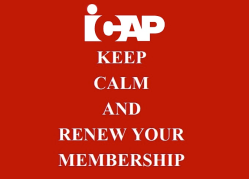

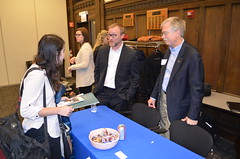

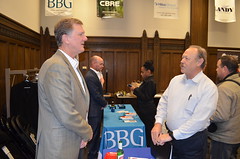

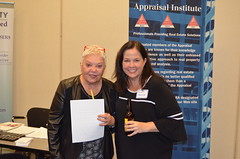


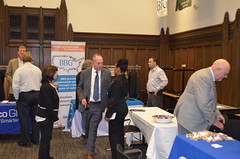


Leave a comment
Comments 0